Family Farming: From concepts to practice
Modalidad: Self-study | Desde el 22-03-22 hasta el 31-12-22
The Course "Family Farming: From concepts to practice is part of the Regional Technical Platform for Family Farming (https://www.fao.org/americas/daf/global/en/) in alliance with the “Sembrando Capacities” projects (ABC, MAPA Brazil, MADR Colombia and FAO) and “Farmers Organizations for African, Caribbean and Pacific countries -FO4ACP” (IFAD, EU, OACPS, PROCASUR and FAO). This Platform promotes institutional and technical innovations that strengthen family farmers and small-scale producers around the world by sharing existing knowledge, experiences and best practices, as well as fostering dialogue, learning and collaboration between diverse partners both within FAO and outside the organization.
To feed the world sustainably, an urgent and radical change in our food systems is required. Transformative measures will only be effective if they address a complex set of interconnected objectives that encompass economic, social and environmental dimensions. In this context, family farmers – male and female herders, fishermen, forest workers, indigenous peoples, and other food producing groups – are crucial to this issue. In addition to providing most of the world's food, they are the main investors in agriculture and form the backbone of the rural economic structure (FAO, 2019).
In this context, this course “Family Farming: From concepts to practice” presents the Family Farming sector as an important and necessary actor to face the region’s current economic, social, food and environmental challenges. The aim is to provide an overview of the main programmes and policies for strengthening Family Farming in Latin America and the Caribbean. Thus, the course includes topics such as: the identity of Family Farming, its conceptualization, the 2030 Agenda and the link between Family Farming and the SDGs, and the multifunctionality of Family Farming in the different territories, among other elements.
* Remember to write your name correctly since it is the same that will appear in the certificate and you will not be able to modify it later.
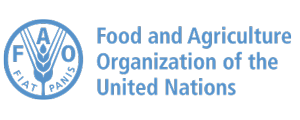 |
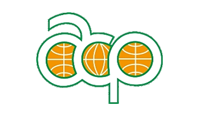 |
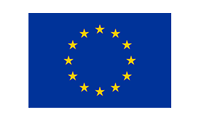 |
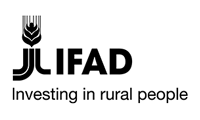 |
 |
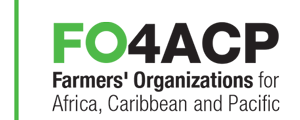 |
Course description
- Name:
-
Family Farming: From concepts to practice
- Type of course:
-
Self-study
- Total course duration:
-
20 chronological hours
- Course modality and methodology:
-
Since this is a self-study course, the participant is responsible for his or her own learning. It is structured into three units that are to be completed sequentially, meaning that once one unit has been completed, it is possible to access the next.
Each unit covers a different theme through its contents and activities, and together they contribute to the achievement of the learning objective. Throughout the course the participant will have the opportunity to study new concepts, learn and strengthen procedures and apply criteria. The themes are linked to presenting an introduction to the concept and importance of Family Farming and an overview of the main programmes and policies for strengthening this sector in Latin America and the Caribbean.
The methodology considers the systematic application of different learning tools and self-assessment exercises per unit, which will facilitate the understanding of the contents. Studying the contents of this course requires a time commitment of approximately 10 chronological hours, which may vary depending on the references used, and it is recommended to hold three one-hour sessions each week.
- Course start date:
-
The course will be available from 23 March 2022 to 31 December 2022.
- Intended audience:
-
- Public managers and professionals who work in the implementation of programmes and actions linked to rural development mechanisms and programmes.
- Representatives of Family Farming organizations.
- Professionals who participate in initiatives within the framework of South-South cooperation in its different modalities.
- Leaders of civil society, representatives of the private sector and academia, and students who have an interest in the course's agenda.
- Technicians and coordinators participating in projects managed by FAO in the region.
- Goal:
-
General aim:
Present an introduction to the concept and importance of Family Farming and an overview of the main programmes and policies for the strengthening of this sector in Latin America and the Caribbean.
Specific objectives:
- Generate basic capabilities to understand the concept of Family Farming and its relevance as a strategic sector for sustainable development.
- Recognize the multiple roles of Family Farming for the sustainability of food systems and the achievement of sustainable development objectives.
- Identify the progress and challenges faced in the implementation of different policies and laws for the strengthening of Family Farming in the Latin American and Caribbean region.
- Contents:
-
- Family Farming: definition and concepts
- Food systems and Family Farming
- Sustainable Development Goals and the Decade of Family Farming
- Pass requirements:
-
To pass the course, a final evaluation must be completed at the end of the learning process.
The minimum passing grade is 70% and an indefinite number of attempts is permitted.
The evaluation will be graded according to the following scale:
- Distinction: 90 to 100 points
- Merit: 80 to 89 points.
- Pass: 70 to 79 points.
- Fail: 0 to 69 points
- Hardware requirements:
-
For the correct completion of the course, the participants must have the following minimum technical specifications:
- PC with Internet connection.
- The quality and speed of browsing and downloading documents will depend exclusively on the connection bandwidth.
- RAM memory greater than 1GB.
- Free hard disk space greater than 500 MB.
- 600 MHz processor or higher.
- Software requirements:
-
- Latest version of Google Chrome web browser, Mozilla Firefox, Safari or Opera, with JavaScript activate
- Screen resolution of at least 1024x768 pixels (width by height).
- PDF document reader.
- Additional requirements:
-
- Microsoft Office skills (Word, PowerPoint, Excel), e-mail management and Internet browsing.
- Availability of at least 8 to 10 hours per week for reading and carrying out course activities. Participants may choose their own course schedule and enter the classroom at any time, but should consider entering at least three times a week to complete the required readings and activities.
- Language:
-
The course will be taught entirely in English (with translation into English)
- Course Code:
-
SAPAF202202-EN
- Certification:
-
Once the course is passed, participants will be able to automatically download the certificate granted by the FAO RLC on the platform where the course is hosted.
Please remember to save your certificate, as it will not be available for download again once the course has closed.
- Related FAO Regional Initiative:
-
RI2: Family Farming and inclusive food systems for sustainable rural development.
- Integrated clusters:
-
8 (Family Farming)
- Supervising Officer:
-
Luiz Beduschi
- Contact:
-
If you have any questions, please contact [email protected]

